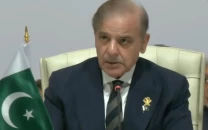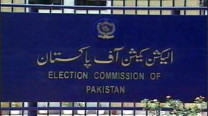Traders for action against debt crisis
Call for reforms to curb expenses, widen tax net, privatise loss-making SOEs

Leading business figures have expressed concern over the rapidly increasing domestic and foreign loans of the country, highlighting the lack of a sagacious and sustainable policy aimed at reducing or eliminating these debts. They highlighted the urgent need for the government to find immediate solutions to curb expenses, widen the tax net, and stop pampering vested interests and elite capture. They also stressed the importance of maintaining a primary fiscal balance in the medium term through rationalising expenditures, including the privatisation of loss-making State-Owned Enterprises (SOEs) and enhancing revenue mobilisation. The country’s debt and liabilities have reached a record Rs81 trillion, with Rs4.4 trillion attributed to liabilities.
Leading business leader and former president of the Karachi Chamber of Commerce and Industry (KCCI), Majyd Aziz, remarked, “It is high time the government gets its priorities in order. The government is like a player financed by the rich who encourage the player to play with the understanding that winnings would be shared 50/50, while losses would be borne by the financier. This is the same method the government uses to finance its debt servicing, development projects, defence, and non-development expenditures, just continuing what past governments did.”
Aziz pointed out the distressing fact that there is no strategy or vision to tackle the burgeoning outlay and allocation of resources or living within limits. He noted that each successive government increases government jobs to accommodate its vote bank, wastes billions on white elephant projects, continues with a royal and luxurious lifestyle, and keeps on mopping up loans from banks, accepting conditionalities of international development financing institutions, and seeking financial support from friendly countries. These channels have persisted and will continue without restraint, soon causing the current debt to surge into triple figures. The immediate solution, according to Aziz, is to control expenses, increase the tax base, and stop pampering vested interests and elite capture.
Rehan Shaikh, President of the Overseas Investors Chamber of Commerce and Industry (OICCI), stated, “Frankly, there are no quick fixes to addressing the rising debt burden as it has systematically increased over the years due to constant stop-gap arrangements and other economic challenges. We need to consistently implement medium-term reforms on our external and fiscal accounts for the debt burden to reach a manageable level in the next 5-10 years. Fiscal consolidation and a manageable level of current account deficits are needed as a medium-term policy instead of one-off and short-term policy choices under various International Monetary Fund (IMF) programmes. Pakistan needs to maintain a primary fiscal balance in the medium term through rationalising expenditures, including the privatisation of loss-making SOEs, as well as enhancing revenue mobilisation.”
“On the other hand,” he said, “Our external debt stock can only be reduced by addressing our structural trade deficit; we need consistently higher exports. The government also needs to quickly adopt structural reforms that improve productivity, diversification, and attract foreign direct investment.”



















COMMENTS
Comments are moderated and generally will be posted if they are on-topic and not abusive.
For more information, please see our Comments FAQ